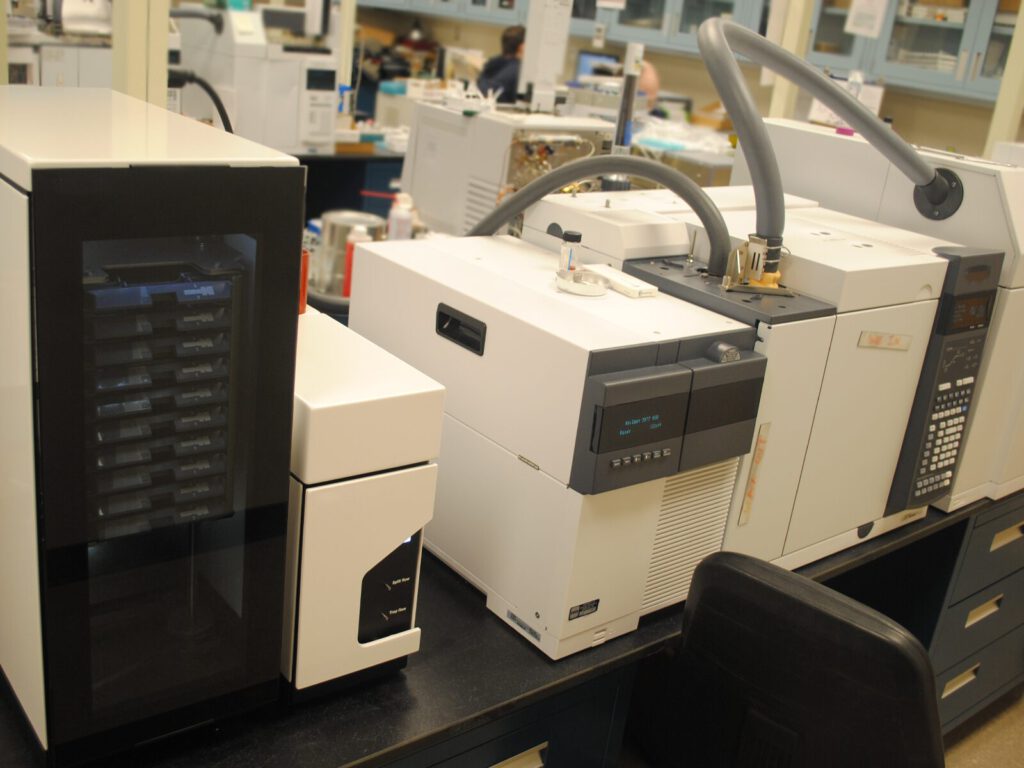Applied Technical Services performs methanol contamination testing to help hand sanitizer manufacturers remain compliant with government regulations. Methanol is a useful organic compound in many products, including synthetic fibers, plywood, and high-performance plastics. Occasionally referred to as methyl alcohol, it also serves an important role as a denaturing ingredient — making the alcohol in the above products unsafe and unpalatable for human ingestion, and thus immune from being taxed as a liquor. Methanol’s toxicity makes it a dangerous compound when found in products intended to expose consumers to alcohol, such as hand sanitizers, and is thus tightly regulated. Alcohol manufacturers work with chemical analysis labs like ATS because we offer the expertise and instrumentation to help them comply with regulatory limits on methanol content, as well as identify potential sources of contamination and recommend remediation steps.
Toxicity and New Considerations Due to COVID-19
Methanol is toxic to humans in higher doses, causing negative health effects ranging from nausea and headaches to blindness and seizures to even permanent nervous system damage and death in extreme exposure scenarios. The US Department of Health and Human Services (DHHS), informed by research conducted by the Food and Drug Administration (FDA), normally recommends that pharmaceuticals such as hand sanitizers contain methanol at a concentration no greater than 3,000 parts-per-million (ppm).
The Coronavirus pandemic has caused demand for hand sanitizers to explode, opening the market to smaller manufacturers that are more likely to replace or dilute the ethanol components of their alcohol mixture with methanol. To combat this problem, the FDA updated its guidelines on hand sanitizer production to require that products contain less than 630ppm of methanol and verify compliance through testing. While this guidance was produced to combat the proliferation of substandard hand sanitizers from less proven producers, even trusted household names can fall out of compliance if their alcohol vendor suffers a contamination event. Our chemists use a method called GC-MS to determine methanol content in client hand sanitizer samples.
How the Method Works: GC-MS
Gas Chromatography / Mass Spectroscopy (GC-MS) is a powerful analytical instrument that allows ATS’ specialists to detect compounds of interest in minute concentrations. Our organic chemical analysis team has cumulative decades of experience using GC-MS to identify and measure constituent compounds in a sample matrix. They can report on both whether methanol is present and how much it constitutes, detecting the compound at the ppm level to meet the criteria laid out by the FDA.
About Applied Technical Services
Applied Technical Services has dedicated itself to providing for the varied needs of our clientele since our founding in 1967. Over the past five decades doing business, we have grown both our breadth of services and depth of expertise: once a trio of engineers aiding local businesses from their office in one of our founders’ basements, ATS now encompasses a multidisciplinary firm that provides testing, inspection, and consulting engineering services to clients located around the globe. Although our broader contamination testing services aid companies from several industries, our experience identifying methanol contamination primarily benefits pharmaceutical clients.
Quality is Our Priority
Our chemical analysis experts perform all contamination testing in our Marietta headquarters under the scope of our ISO 9001:2015 registered quality management system. Gaining this distinction means that our business processes have been thoroughly inspected by ISO-approved auditors repeatedly, who consistently affirm that our quality assurance policies comply with internationally recognized standards. ATS invites this scrutiny into our procedures because we feel responsible to our clientele — responsible for the quality of work we provide and responsible for continually improving upon our best — and can best pursue this ideal by holding ourselves publicly accountable for the work we do.
We uphold a number of policies to provide our clients with the best customer experience possible, including:
- Ensuring our testing specialists return detailed, clear, accurate reporting within a timely manner
- Empowering our customer service team to receive clients with questions and facilitate contact with the most relevant staff member
- Expecting our lab personnel to remain accessible to clients looking for clarification on either the status or results of their testing, responsive to the needs they express, and engaged while helping resolve their problems
If your company would run afoul of FDA guidelines by making a product that contained non-compliant levels of methanol, contact ATS today for a free quote on contamination testing — We take a closer look!



